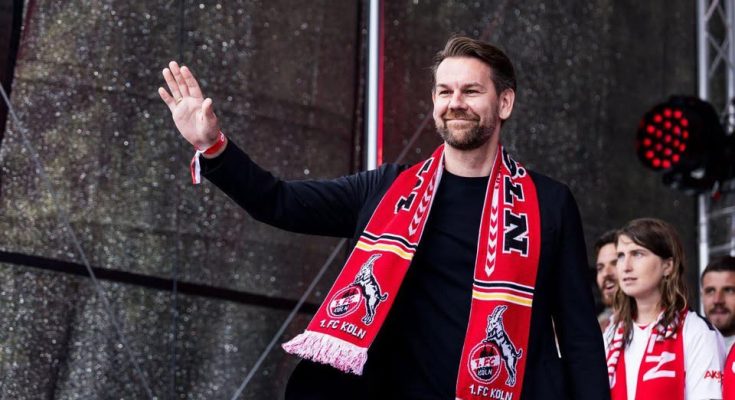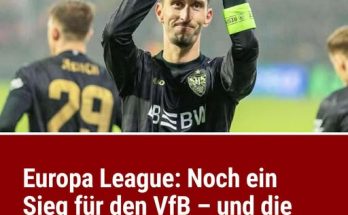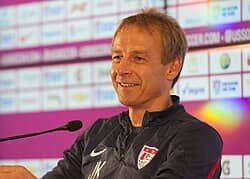The rumour mill, that ever-churning engine of the football world, has a way of reducing seismic shifts to mere whispers and social media snippets. A post here, a cryptic report there. Yet, sometimes, within those digital murmurs, lies the blueprint for an entire club’s future. The recent news that 1. FC Köln is engaged in contract talks with Thomas Kessler, with the intention of promoting the 39-year-old to the powerful position of *Geschäftsführer Sport* (Managing Director of Sport) and extending his stay beyond 2027, is precisely one of those moments. This is not merely a personnel decision; it is a profound statement of intent, a bet on continuity, philosophy, and a very specific kind of modern footballing intelligence that has become Kessler’s trademark.
To understand the weight of this potential appointment, one must first look beyond the corporate title and into the soul of the man and the club he represents. 1. FC Köln is not just any Bundesliga outfit. It is an institution built on passion, tradition, and a sometimes maddening, often glorious, emotional volatility. It is a club where the connection between the city, the fans, and the team is not a marketing slogan but a tangible, living, breathing entity. Managing such a club requires more than just business acumen; it requires an almost innate understanding of its heartbeat. Thomas Kessler, a native son of Cologne, a former youth player of the club, and a man who has meticulously crafted his post-playing career within its corridors, embodies this understanding like few others.
His playing career, while solid, was not one of glittering superstardom. He was a goalkeeper who knew the grind, the fight for a place, the reality of life outside the spotlight. This background is crucial. It has afforded him a perspective often lacking in those who have only ever known the game from the boardroom or the very pinnacle of the pitch. He knows what it means for a young player to break through, for a squad player to stay motivated, for the collective to overcome individual limitations. This empathy is not a soft skill; in the high-stakes, high-pressure environment of professional football, it is a strategic asset.
Since hanging up his gloves, Kessler has undertaken a deliberate and impressive journey of education and application. He earned a degree in sports management, immersing himself in the theoretical frameworks of the industry. But theory alone is not enough in Cologne. He then seamlessly transitioned into roles at the club that served as a perfect apprenticeship. As a team manager and later as head of the licensed player department, he became the crucial bridge between the dressing room and the front office. He was the man players could talk to, the one who handled the day-to-day concerns, the one who understood the human being behind the footballer. This role is often underestimated, yet it is the very glue that holds a sporting project together. It is where trust is built, and in football, trust is the currency of success.
The proposed promotion to *Geschäftsführer Sport* is the logical, if accelerated, culmination of this journey. It places him at the very apex of the club’s sporting structure, responsible for the overarching strategy that defines the first team, the youth academy, and the transfer policy. In Kessler, the new executive board trio of Christian Stobbe, Stefan Alvermann, and Philipp Sobek is not just appointing a competent administrator; they are endorsing a philosophy. It is a philosophy of internal growth, of data-informed but not data-dominated decision-making, and of a cohesive identity that runs from the first team down to the youngest academy prospect.
This approach stands in stark contrast to the often chaotic, reactionary model that has plagued many German clubs, including Köln at times. The temptation to seek quick fixes, to chase big-name signings on exorbitant wages, to tear up a plan after a string of bad results, is immense. A Kessler-led sporting department suggests a different path: one of patience and long-term vision. It suggests a focus on developing and identifying young, hungry talent, both from within the Geißbockheim academy and from shrewd scouting in overlooked markets. It points towards a transfer policy that is sustainable, ensuring the club does not jeopardise its financial future in a desperate gamble for short-term glory.
His deep knowledge of the club’s youth setup is perhaps one of his most significant advantages. He knows the players, the coaches, the potential gems and the likely late bloomers. In an era where the financial disparities in European football are wider than ever, the ability to produce and integrate homegrown talent is not just romantic; it is a fundamental pillar of survival and competitiveness. Promoting a player like Yann Aurel Bisseck or integrating a local teenager into the first-team setup carries a symbolic and practical weight that a €5 million signing from another league never can. Kessler’s intimate familiarity with this pipeline will be invaluable in building a team that truly reflects the identity of the club.
Furthermore, his age and background position him perfectly to navigate the modern footballer’s psyche. At 39, he is closer in age and experience to the current squad than a traditional, older executive might be. He understands the social media landscape, the different pressures, the evolving motivations of today’s athletes. This allows for a more effective and authentic communication channel, fostering a culture where players feel understood and valued, not just as assets, but as people. This can be the difference in contract negotiations, in convincing a promising player to stay, or in managing the delicate ego of a star.
Of course, the path ahead is fraught with challenges. The Bundesliga is a ruthless ecosystem. The pressure to deliver immediate results will be immense, especially for a club with the passionate, and at times impatient, support of Köln. There will be transfer windows that don’t go to plan, promising players who don’t develop as hoped, and inevitable losing streaks that test the resolve of the entire project. The true test for Kessler will be whether his long-term vision can withstand the short-term storms. Can he make the tough, unpopular decision to sell a key player for the right price? Can he stick with a young, error-prone talent through a difficult patch, resisting the outcry for a proven, but expensive, replacement? These are the moments that will define his tenure.
The decision by Stobbe, Alvermann, and Sobek to enter into these talks, and to reportedly seek an extension until 2027 and beyond, is a powerful vote of confidence. It signals that they are building for a decade, not just a season. They are betting that stability, a clear philosophy, and a leader who embodies the club’s soul is the most potent formula for sustainable success. In a world of football often dominated by foreign investors, super-agents, and transient mercenaries, 1. FC Köln appears to be making a conscious choice to double down on its own.
The contract talks with Thomas Kessler, therefore, are about much more than a job title or a duration of employment. They are about the soul of 1. FC Köln. They are a declaration that the club believes its future is best secured not by looking outward for a saviour, but by nurturing and empowering one of its own. It is a bold, intelligent, and deeply symbolic move. If successful, it could herald the dawn of a new, stable, and identifiably Kölsch era at the RheinEnergieSTADION, an era built not on flash and cash, but on vision, trust, and a profound understanding of what it truly means to be Effzeh. The talks are running, and with them, the future of an entire institution is being thoughtfully, deliberately, and excitingly shaped.



